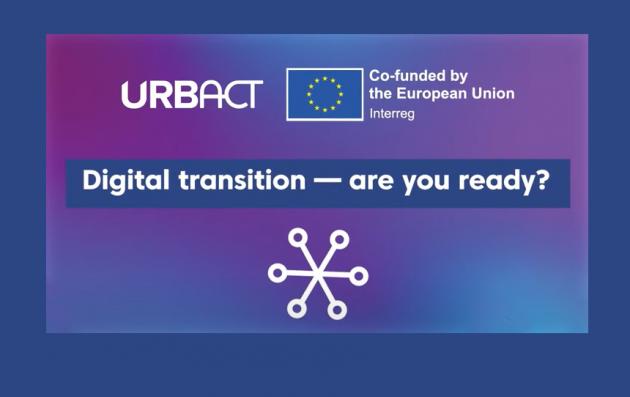

Digital Transition is a central cross cutting theme within the new URBACT IV programme.
Objective : This training aims to build the capacities of city-practitioners and policy-makers to understand the main concepts and challenges associated with digital transitions in a few key policy areas. The goal is to help them feel more comfortable in considering digital tools and new technologies as a way of delivering against policy goals.Target Audience: the training isn’t for seasoned ‘techies’. Rather, it targets people who might self-define as tech ‘newbies’ and/or people from smaller and medium sized cities. This is because these are the places which have most to gain from understanding and embracing digital transition. The training has been developed by the TechPlace community, which is an online place for city practitioners and policy makers wanting to make a positive difference using tech. We’re building a community of interest and a safe place to exchange, learn and ask stupid questions. We welcome practitioners from across all URBACT cities and beyond.
The training is broken down into the following 6 modules:
Demystifying Tech - introducing eight essential tech terms - IoT, AI, Robots, Drones, Virtual Reality, Augmented Reality, Blockchain and 3D Printing
Digital Environment - exploring how digital tools can help us cope better with today’s challenges related to climate.
Digital Society - exploring how tech and digitalisation are shaping society and how society is shaping digitalisation
Digital Government - exploring what digital transformation means for governmental structures and organisations and why it is important.
Digital Economy - exploring what a digital economy is, what role the city might play in growing a digital economy and how to make it happen.
Agile City Leadership - reflecting on how cities might use agile methodologies to be more responsive to ever changing needs
For each module there is a short video or webinar, written and video case studies, city use cases plus a range of handouts and some short tasks to help you check your understanding and progress.
The modules are designed to be used together or in isolation so you can dip in and out or watch from the beginning to the end.
We hope you find this helpful and would value all and any feedback to inform future capacity building work.
The URBACT Team